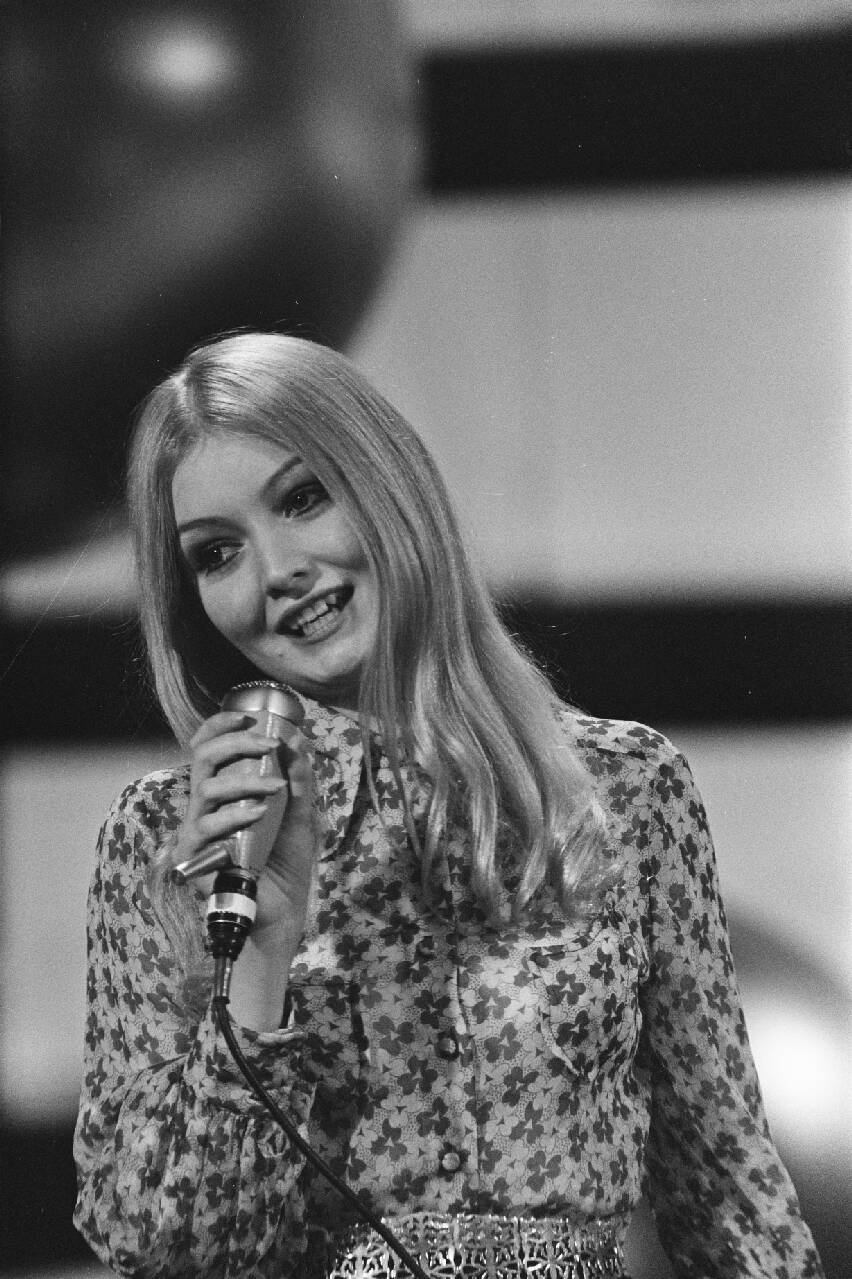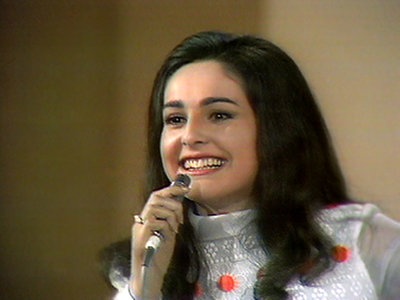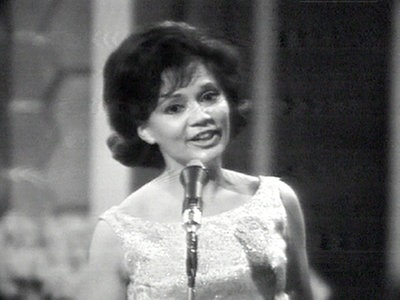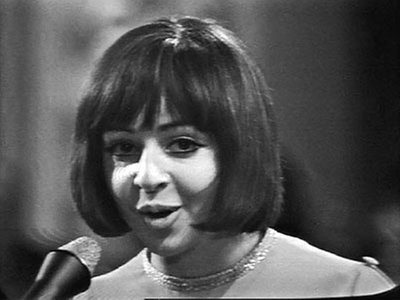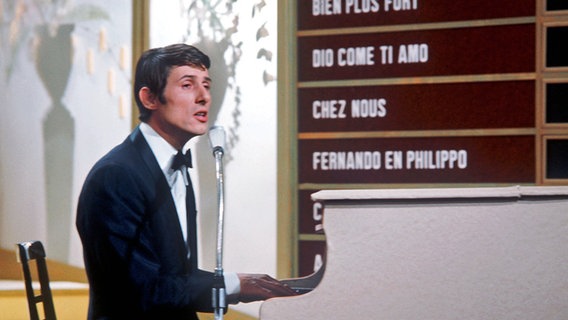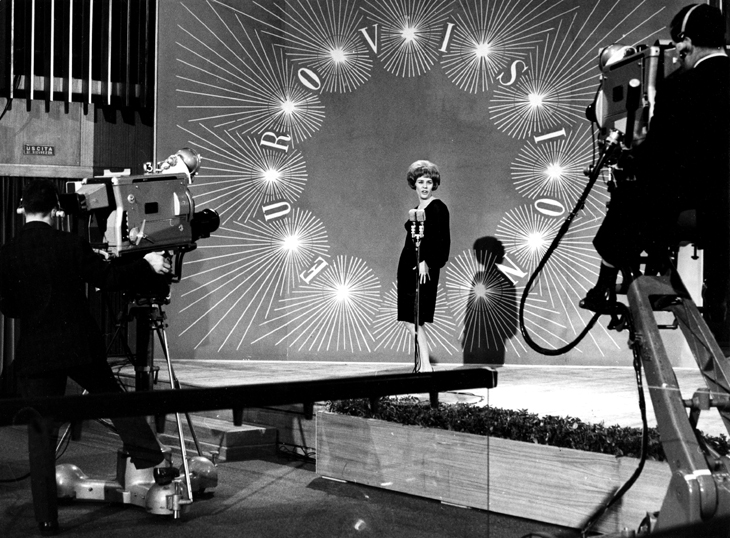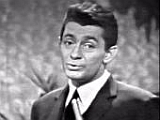Vicky Leandros
Date: March 25, 1972
Venue: Usher Hall, Edinburgh, UK
Presenter: Moira Shearer
Orchestra: BBC Radio orchestra
Conductor: Malcolm Lockyer
Director: Terry Hughes
Scruteneer: Clifford Brown
Host broadcaster: BBC
Price presenter: Séverine
Interval act: Tapto at Edinburgh Castle
Duration: 1 hour, 45 minutes
Number of entries: 18
Debuting countries: -
Returning countries: -
Withdrawing countries: -
Winning Song: Après toi - Vicky Leandros, Luxembourg
Voting system: Each country had two jury members, one aged between 16 and 25 and another aged between 26 and 55. They each awarded 1 to 5 points for each song (except for the song from their own country) immediately after it was performed, the votes were collected and counted as soon as they were cast. The juries watched the show on TV from a backstage area of the theatre and then appeared on stage to confirm their scores.
Entries
01. Germany: Mary Roos - Nur die Liebe läßt uns leben (3rd place, 107 points)
02. France: Betty Mars - Comé-comédie (11th place, 81 points)
03. Ireland: Sandie Jones - Ceol an Ghrá (15tj place, 72 points)
04. Spain: Jaime Morey - Amanece (10th place, 83 points)
05. UK: The New Seekers - Beg, steal or borrow (2nd place, 114 points)
06. Norway: Grethe Kausland & Benny Borg - Småting (14th place, 73 points)
07. Portugal: Carlos Mendes - A festa di vida (7th place, 90 points)
08. Switzerland: Véronique Müller - C'est la chanson de mon amour (8th place, 88 points)
09. Malta: Helen & Joseph - L-imhabba (18th place, 48 points)
10. Finland: Päivi Paunu & Kim Floor - Muistathan (12th place, 78 points)
11. Austria: Milestones: Falter im Wind (5th place, 100 points)
12. Italy: Nicola di Bari - I giorni dell'arcobaleno (6th place, 92 points)
13. Yugoslavia: Tereza Kesovija - Muzika i ti (9th place, 87 points)
14. Sweden: Family Four - Härliga sommardag (13th place, 75 points)
15. Monaco: Anne-Marie Godart and Peter MacLane - Comme on s'aime (16th place, 65 points)
16. Belgium: Serge & Christine Ghisoland - À la folie ou pas du tout (17th place, 55 points)
17. Luxembourg: Vicky Leandros - Après toi (1st place, 128 points)
18. The Netherlands: Sandra & Andres - Als het om de liefde gaat (4th place, 106 points)
Sandra & Andres
The Eurovision Song Contest 1972 was the 17th edition series. Séverine made the trip to the Scottish capital Edinburgh to pass on the Grand Prix to Vicky Leandros. However, she looked thoroughly uninterested in the Monegasque entry when seen by viewers checking her watch after the song was performed.
Luxembourg's win was their third. They won with the song Après toi which was sung by Vicky Leandros and written by Mario Panas, Klaus Munro and Yves Dessca. Yves Dessca also wrote the text for Un Banc, Un Arbre, Une Rue that won in 1971, and other than conductors of the winning song, became the second person to win the Contest twice, the first person to win for two different countries and the first person to win two years in a row.
Location
The Usher Hall, venue for the 1972 contest, is a concert hall, situated on Lothian Road, in the west end of Edinburgh, Scotland. It has hosted concerts and events since its construction in 1914 and can hold approximately 2,900 people in its recently restored auditorium, which is well loved by performers due to its acoustics. The Hall is flanked by The Royal Lyceum Theatre on the right and The Traverse Theatre on the left. Historic Scotland has registered the Hall with Category A listed building status.
Format
Monaco was unable to host this year's Eurovision as they were unable to provide the resources. They approached French TV, who agreed to produce the contest, but only if the contest was staged in France and not the planned Monte Carlo Opera House. Rejecting the offer, RMC Monaco invited the President of the EBU, Charles Curran of the BBC to host, so the United Kingdom stepped in to host it again. For the first time, however, the BBC chose a venue outside London.
The Irish entry was in the Irish language, so far the country's only entry in that language. The contest was broadcast for a first time in live to Asia.The contest was broadcast to Japan, Tawian, Thailand, the Philippines & Hong Kong. The contest was broadcast to in Iceland and Israel few days later. Brazil and Greece also broadcast the contest live.
Participating countries
All countries who participated in the 1971 contest were present this year; with no withdrawals, returns, or débutantes.
Returning artists
Four artists returned to the competition this year. Luxembourg's Vicky Leandros who last performed for the nation in 1967; Carlos Mendes for Portugal who last participated in 1968; Swedish entry Family Four who returned for a second consecutive year; and finally Yugoslavia's Tereza Kesovija who previous represented Monaco in 1966.
Voting
Each country had two jury members, one aged between 16 and 25 and one aged between 26 and 55. They each awarded 1 to 5 points for each song, other than the song from their own country. The jury was stationed in the safety of the Great Hall of Edinburgh Castle. The jurors cast their votes immediately after each song was performed and they were then collected and counted. During the voting sequence on screen, they displayed their scores for each song, which were visual verifications of the scores they had awarded earlier. Meanwhile the interval act also came from the Castle, this time the vast Esplanade outside.
The voting procedure turned out to be a rather dull affair, there was no real challenge to Vicky Leandros. Interestingly the winning score of 128 was exactly the same as Monaco's the year before.







